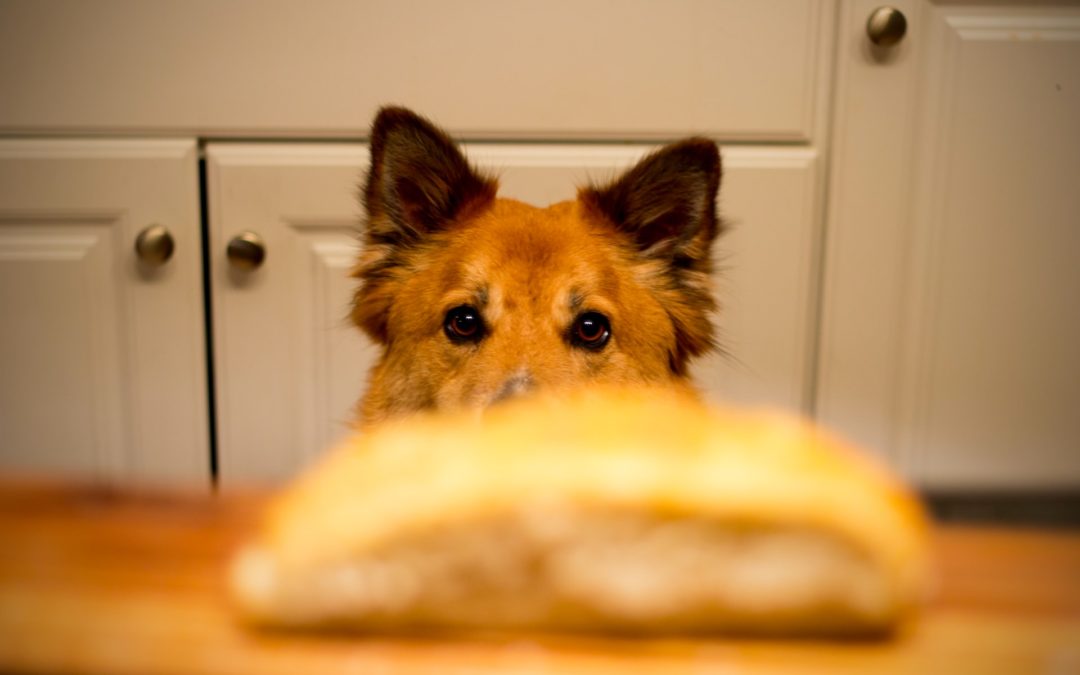With the holidays in full swing, there is no shortage of rich foods and tasty treats around the house. It feels good to treat your pets to lip-smacking human food from time to time. However, there are many holiday goodies that are unhealthy and/or toxic to your four-legged family members. Here are some common holiday foods not to feed pets.
Rich, Fatty Foods
These types of foods are incredibly difficult for pets to digest. Turkey skin, chicken skin, ham, and gravy all have high-fat content. After eating these foods, pets can experience vomiting and diarrhea. These foods can also cause inflammation of the pancreas or pancreatitis.
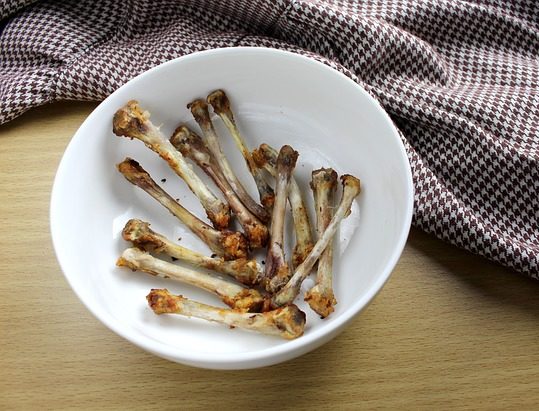
Bones
It seems natural to give a dog a bone, but all cooked bones should be avoided. As bones cook, they lose moisture and become brittle. When chewed, they can splinter and become lodged in your pet’s throat causing significant trauma. If the bones make it down the throat, poultry bones can splinter and pierce the intestines. Pork bones often turn into a solid mass, causing obstruction in the intestines.
With either of these issues, you could find yourself in the Animal ER. Most holidays contain enough drama; don’t add a hospital visit to the mix. Protect your pet and your pocketbook by simply avoiding all cooked bones.
Chocolate
The majority of pet owners know that chocolate is harmful to their pets, but most don’t know the reason why. Chocolate contains caffeine and theobromine; these are small molecules that are difficult for pets to metabolize. All chocolate is not created equal. The darker and more bitter the chocolate, the higher the concentration of theobromine, meaning only a small amount eaten could lead to severe toxic effects.
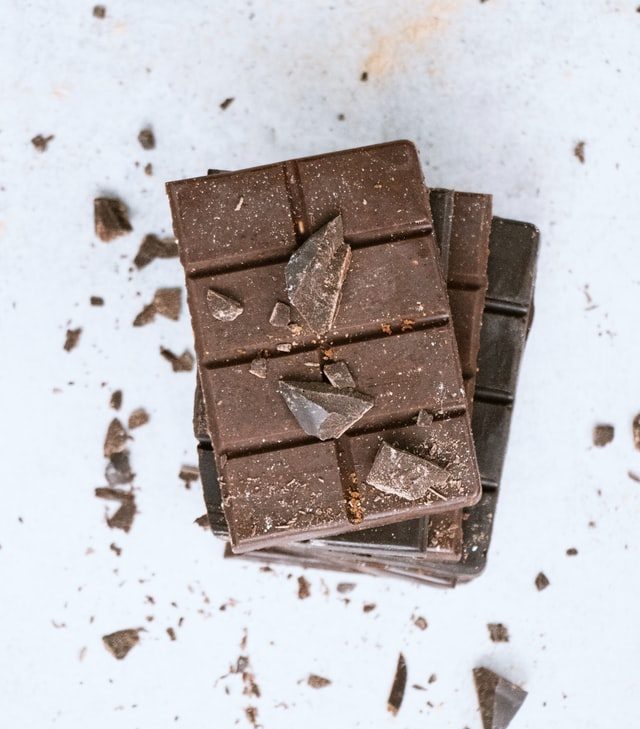
Chocolate is one of the most common causes of dog poisoning.
If your dog has ingested chocolate, they may experience vomiting and diarrhea but can also have more serious symptoms such as cardiac arrhythmias (irregular heartbeats) and seizures. It is best to avoid keeping wrapped chocolate underneath the tree or in stockings where it is easily accessible for pets.
If your pet ingests chocolate, call the Poison Control Pet Hotline right away at 888-426-4435. Be sure to give them information such as your pet’s weight, the type of chocolate ingested, how much your pet ingested, and how much time has passed since the ingestion occurred.
A veterinary consultant would be able to tell you if the amount your pet ingested warrants an immediate veterinary visit for supportive care.
Onions and Garlic
All members of the onion family (shallots, garlic, and scallions) contain a toxic component known as N-propyl disulfide. This causes the breakdown of red blood cells, leading to anemia. Even consuming a small amount can cause vomiting and diarrhea.
Steer your pet clear of dishes containing garlic and onion. That yummy green bean casserole, garlic mashed potatoes, and stuffing should remain just for human consumption!
Raisins/Grapes
Some may not realize that raisins and grapes are toxic for pets. If ingested, it can lead to kidney failure in dogs. The initial signs following ingestion are vomiting and hyperactivity. If you suspect your pet has ingested grapes or raisins, contact your veterinarian or the Poison Control Pet Hotline (888-426-4435) as soon as possible.
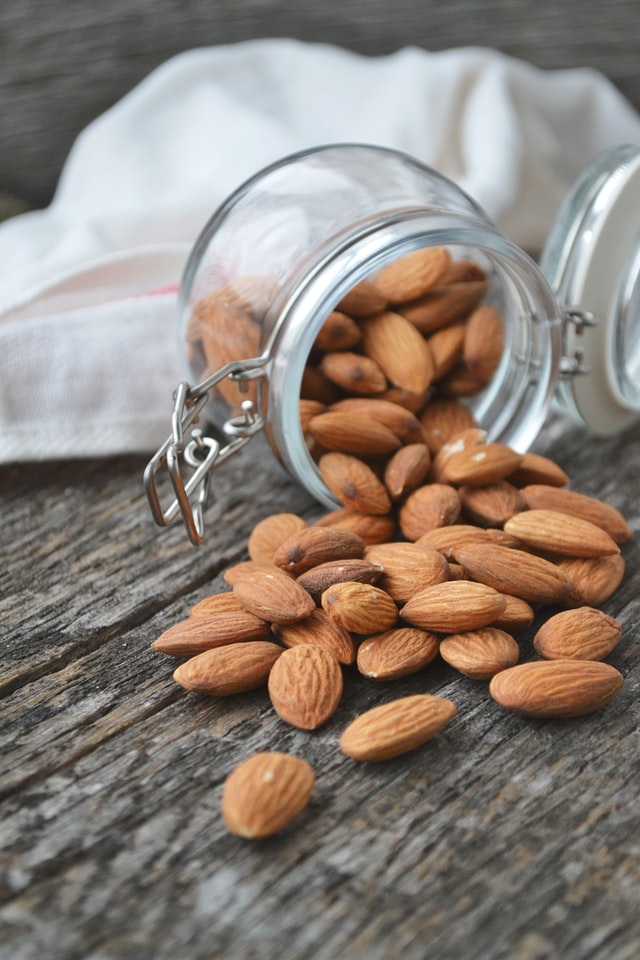
Nuts
Some nuts, such as peanuts, are safe to give your pet in moderation. However, be very careful about which nuts your pets eat. Various effects range from minor gastrointestinal upset to severe reactions.
Nuts to avoid:
- Macadamia
- Almonds
- Walnuts
- Pistachios
When your pet eats Macadamia nuts, it can lead to a syndrome with symptoms of muscle weakness, slowing of neurological functions (brain, spine, and nerves), vomiting, and hyperthermia.
Nuts are also high in fat and can cause pancreatitis. To be safe, if you want to give your pet a nutty treat, it’s best to stick with peanut butter—but make sure it is without the sweetener Xylitol!
Dairy Products
It is often thought that we are supposed to give a saucer of milk to our cats. Dogs and cats aren’t built like humans and can’t break down lactose. Ingesting dairy products can lead to digestive issues like diarrhea. Pets should remain dairy-free.
Alcoholic and Caffeinated Beverages
Make sure to keep your drinks away from furry family members. While you may physically not give your pet alcohol, drinks are often left unattended and in “reach” of your pets.
Caffeinated coffees and sodas should also be kept out of reach. Too much-ingested caffeine raises blood pressure, can lead to irregular heartbeats, and in severe cases, seizures and muscle tremors.
Yeasty Dough
Your pet’s stomach is a perfect warm environment for bread to rise. If your pet eats unbaked bread or dinner rolls, they will expand in your pet’s stomach and lead to excessive bloating. Large amounts of dough can even lead to intestines bursting. Unbaked dough is fermented, so it’s the same as if alcohol is being absorbed.
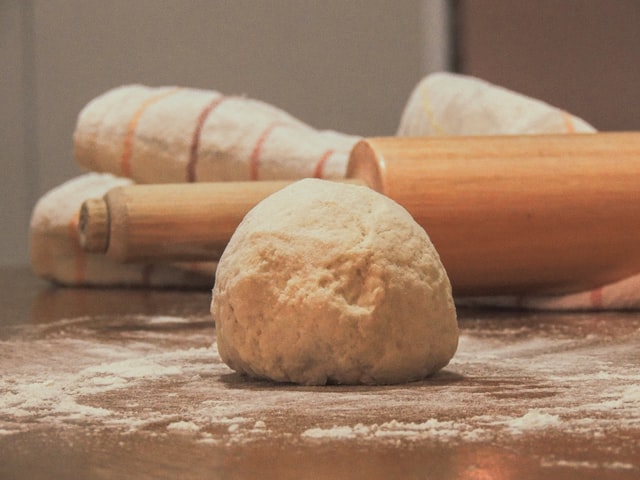
Inform Holiday Visitors
The holidays are about spending time with family and friends. Don’t assume that everyone visiting your home understands pet safety. Be sure to let your visitors know to avoid feeding your pets table scraps and excessive amounts of treats.
If you suspect your pet has ingested something toxic, it is very important to contact your veterinarian or the Poison Control Pet Hotline, 888-426-4435 as soon as possible. Be prepared to help your pet vomit and/or go to an Animal ER.
The sooner you seek help, the more options you have to treat your pet and resume a happy, stress-free holiday.
This blog was written by technicians who work for Pet Medical Care. This article is for educational purposes only. Always consult a doctor if you have concerns.
Pet Medical Care is based out of Meridian, Idaho. It is home to Linder, Springs, and Mobile Pet Medical Care.

